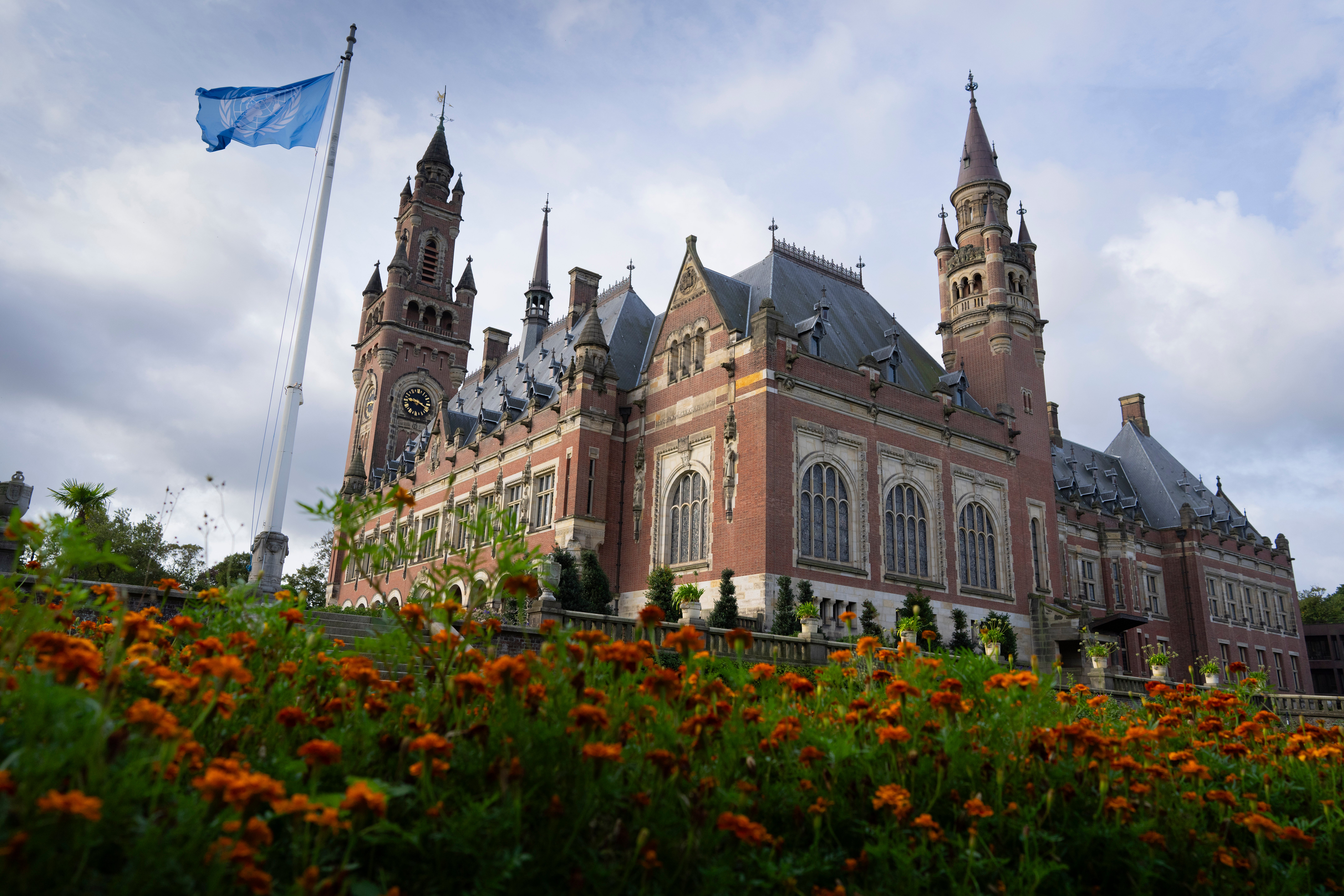Guyana tells UN court that Venezuelan referendum on territorial dispute is an 'existential threat'
Guyana has urged judges at the United Nations’ highest court to call a halt to parts of a Venezuelan referendum about a territorial dispute between the South American neighbors

Your support helps us to tell the story
From reproductive rights to climate change to Big Tech, The Independent is on the ground when the story is developing. Whether it's investigating the financials of Elon Musk's pro-Trump PAC or producing our latest documentary, 'The A Word', which shines a light on the American women fighting for reproductive rights, we know how important it is to parse out the facts from the messaging.
At such a critical moment in US history, we need reporters on the ground. Your donation allows us to keep sending journalists to speak to both sides of the story.
The Independent is trusted by Americans across the entire political spectrum. And unlike many other quality news outlets, we choose not to lock Americans out of our reporting and analysis with paywalls. We believe quality journalism should be available to everyone, paid for by those who can afford it.
Your support makes all the difference.Guyana on Tuesday urged judges at the United Nations' highest court to call for a halt to parts of a Venezuelan referendum about a territorial dispute that Guyana representatives called an "existential threat” designed to pave the way for the annexation of a large part of the country.
Two days of hearings that opened at the International Court of Justice are the latest legal tussle between the South American neighbors in a dispute that dates back to an arbitration award by an international tribunal in 1899 that drew the border between them.
The Tunisia-sized swath of jungle west of the Essequibo River in the dispute is rich in gold, diamonds, timber and other natural resources.
Guyana launched a case at the world court in 2018 seeking to have U.N. judges uphold the 1899 ruling. It returned to the court last month after Venezuelan authorities published five questions the country plans to ask in a consultative referendum scheduled for Dec. 3 about the future of the Essequibo.
“The collective decision called for here involves nothing less than the annexation of the territory in dispute in this case. This is a textbook example of annexation,” said Paul Reichler, an American lawyer representing Guyana.
The application asks the court’s judges to make a series of urgent orders including calling for a halt to Venezuela’s planned referendum in its current form and to scrap three of the five planned questions.
“It is not an exaggeration to describe the current threat to Guyana as existential and the need for provisional measures as urgent," the leader of Guyana’s team in court, Carl Greenidge, told judges.
The referendum “seeks to create a new Venezuelan state that purports to annex and incorporate into its own territory Guyana’s entire Essequibo region — more than two thirds of its national territory — and to grant Venezuelan citizenship to the population,” he added.
The referendum was proposed by Venezuela's National Assembly, approved by the National Electoral Council and cleared by the Supreme Tribunal of Justice, all controlled by supporters of President Nicolás Maduro.
Maduro and his allies are encouraging voters to answer “yes” to all questions, one of which calls for the creation of a state in that territory and granting Venezuelan citizenship to current and future area residents.
It is a significant escalation in frictions between the countries that have increased since 2015 as a result of oil exploration operations by ExxonMobil and other companies in offshore areas intersecting the disputed territory.
The Venezuelan government maintains that Guyana does not have jurisdiction to grant concessions in maritime areas off the Essequibo.
The referendum is scheduled to take place six weeks after Venezuela’s opposition held a presidential primary that exceeded participation expectations, including in areas long considered strongholds of the ruling party.
After years of fruitless mediation failed to resolve the dispute, Guyana went to the world court in 2018, asking judges to rule that the 1899 border decision is valid and binding. Venezuela argues that a 1966 agreement to resolve the dispute effectively nullified the original arbitration.
The court has ruled the case is admissible and that it has jurisdiction. A decision, which would be final and legally binding, is likely years away, but a decision on the request discussed Tuesday will likely be issued within weeks.
___
Associated Press writer Regina Garcia Cano in Caracas, Venezuela, contributed to this report.